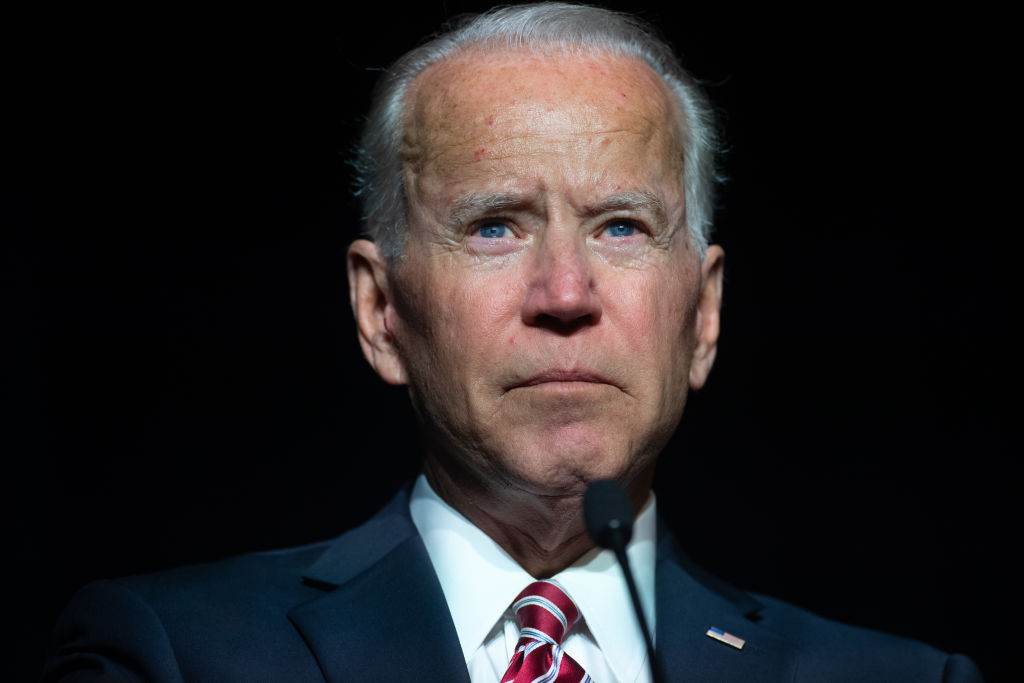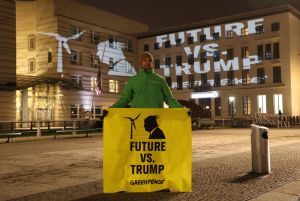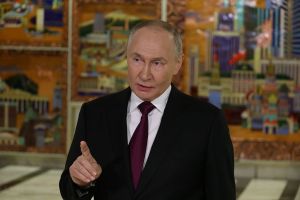Russia’s military aggression against Ukraine requires a swift and effective Western response. But according to neoconservative and liberal internationalist pundits like columnist Walter Russell Mead, the invasion marks nothing less than an assault on the “world order” akin to Nazi aggression at the opening of World War II.
“Not since Hitler attacked the Soviet Union in 1941 has a European leader committed an act of aggression as brutal or as nakedly cynical as Mr. Putin’s unprovoked attack on Ukraine,” Mead writes in the Wall Street Journal.
That is rich coming from Mead who was one of the leading cheerleaders for the US attack on Iraq, which was launched under “nakedly cynical” allegations that Iraq had weapons of mass destruction and was opposed by liberal democracies like France and Germany, among others. And let us not get into the effect that the invasion of Iraq had on the “world order,” starting with the order in the Middle East.
In fact, Mead warns that “Mr. Putin’s Western allies and enablers should probably check with their lawyers” since they are defending a “war criminal of premeditated and unjustified aggression.” He reminds them that the “Nuremberg trials punished economic collaborators who enabled Hitler’s war of aggression.”
Ouch!
For years, pundits like Mead have been arguing that the “liberal international order” is under attack by autocratic clones of Putin, including, among others, the leaders of the “illiberal” democracies of Poland and Hungary, India’s Narendra Modi and Turkey’s Recep Tayyip Erdogan. The Financial Times’ Gideon Rachman even included former Israeli prime minister Benjamin Netanyahu as one of the members of the “international cult of Vladimir Putin.”
The Western world may be divided about how to deal with Vladimir Putin. But surely we can all agree on one thing: Russia’s president is the bad guy in this particular drama.
So it is kind of ironic that joining the United States in condemning the Russian attack on Ukraine (and defending the liberal international order?) are Poland’s nationalist prime minister Mateusz Morawiecki — whose government has been a favorite target of liberal internationalist bureaucrats of the European Union (EU) — and Turkey’s Erdogan.
This might come as news to those with short historical memories, but Turkey, in violation of international treaties, invaded Cyprus in 1974, and notwithstanding repeated United Nations’ condemnations, still controls the northeastern part of the island. It’s established there a “state” for the more than 300,000 Turkish-speaking Cypriots, which is only recognized by one of the 193 members of the UN — Turkey. (This is probably where Putin got the idea of establishing his own mini-states in Georgia and Ukraine.)
At the same time, everyone is still waiting to hear what the largest democracy on earth, India, central to the Biden administration’s union of democracies, not to mention its strategy to contain China in the Indo-Pacific, has to say about the Russian attack against Ukraine. Surely this guardian of the important liberal international order would condemn Putin?
Not so much. Don’t expect India to denounce Russia, its long-time strategic partner, anytime soon. And after revoking the special autonomous status of Jammu and Kashmir in 2019, which was followed by a government clampdown on protesters in the region, and condemned by the US, India is in no position to intervene in another old ethnic dispute.
But then if all of the above does not cause cognitive dissonance to those preparing Nuremberg-like trials for Putin “enablers,” there is another major challenge to the notion advanced by Mead and others that America is leading a fight against an anti-Western autocrat who is trying to reset the world order in a way that would favor other autocrats.
Just when it is calling on the international community take action against Russia, the United States, according to press reports, is about to restore the 2015 nuclear deal with the Islamic Republic of Iran. This follows talks in Vienna in which Russia (yes, the same Russia headed by Putin) and China have played leading roles in trying to revive the old accord.
Hence while it is clamoring for economic sanctions against Russia, the United States is expected to begin lifting the economic sanctions it imposed on Iran to penalize it for being a central world exporter of terrorism.
This may be a topic for a political science seminar, but my guess is that even a flaming Russophobe would agree that Russia under Putin is more advanced in terms of its democratic and liberal norms than theocratic Iran, where women are second-class citizens and gays are put to death.
So why would the Biden administration enable Iran in its efforts to help the anti-Saudi Houthis in Yemen, to assist the anti-Israeli terrorist groups Hezbollah in Lebanon and Hamas in the Gaza Strip, and — let us not forget — to bolster the power of Syria’s dictator Bashar Assad? Assad, by the way, just so happens to be an ally of — wait a minute! — Russia, as well the murderer of hundreds of thousands of civilians. In his case, a judgment in a war crimes trial would certainly be appropriate.
But when it comes to the Islamic Republic and the expected nuclear deal, the Biden administration’s spin has nothing to do with democracy, human rights, and aggression against neighboring states. In that case, these liberal internationalists suddenly become born-again realpolitik types.
You see, the economic sanctions against Russia, a major energy exporter, are going to result in rising oil prices, which will put upward pressure on inflation. But then allowing Iran to export its oil would mitigate that and help lower global energy prices, which would be in America’s economic interest.
Which raises the following question: if what Biden had in mind was lowering prices at the pump, why did he impose sanctions on Russia in the first place?

























